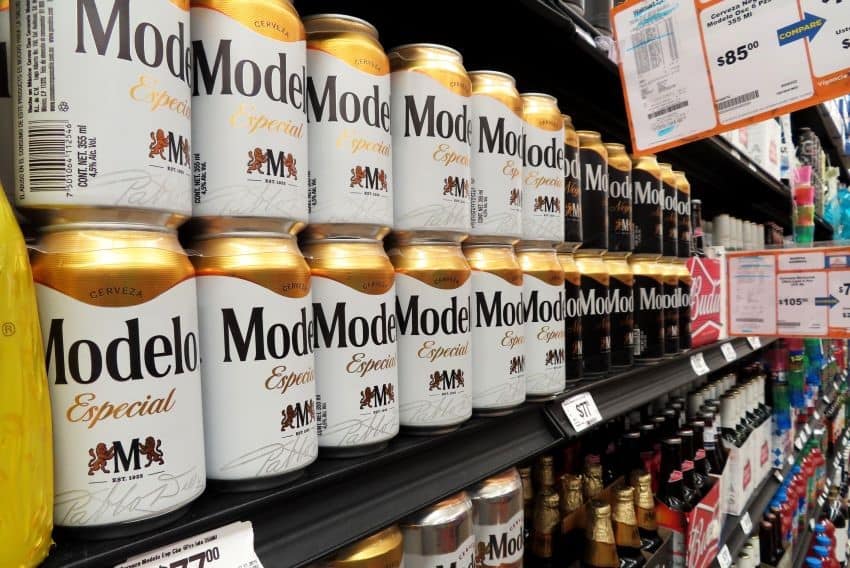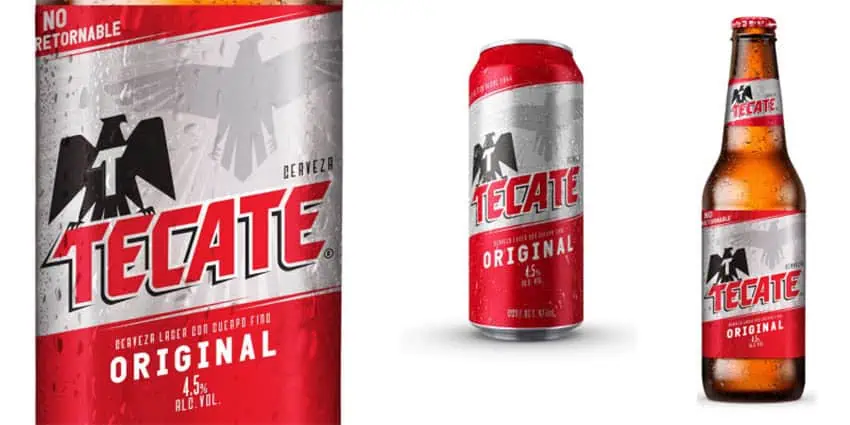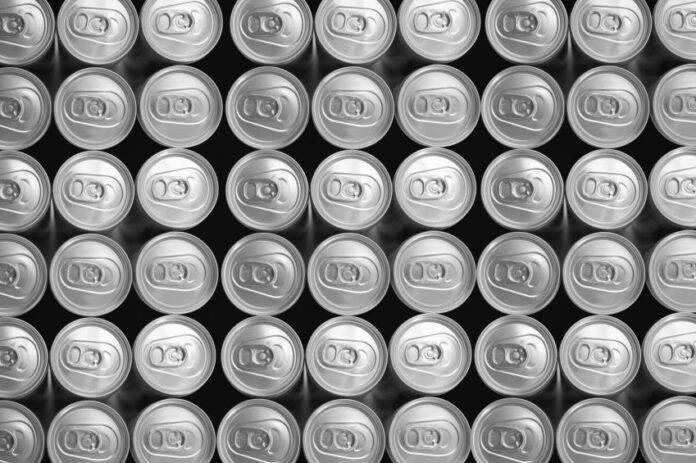After a lot of confusion due to ambiguous and apparently incorrect official information, it has become clear that Mexican beer may, in fact, be shipped tariff-free to the United States provided it complies with the rules of the USMCA free trade pact.
However, consumers in the United States could still face higher prices when buying cans of Mexican beer as a 25% tariff on imported aluminum cans is in effect.
Citing information from the United States Department of Commerce, the El Economista newspaper reported on Sunday that while U.S. President Donald Trump imposed a 25% tariff on beer cans (and empty aluminum cans), the duty doesn’t apply to the beer itself.
El Economista’s reporting comes after the digital newspaper Politico said earlier this month that it received an emailed statement from a Commerce Department official which clarified that “tariffs on imported beer only apply to the value of the aluminum content of the beer can, and not to the beer itself.”
On April 2, the Department of Commerce announced an expansion of 25% tariffs on steel and aluminum from all countries around the world to include “two additional aluminum derivative products: beer and empty aluminum cans.”
Mexico News Daily reported at the time that as beer itself isn’t an “aluminum derivative product,” it appeared that only canned beer — the beer and its receptacle — would be affected by the 25% tariff.
MND noted that CNBC had interpreted a Department of Commerce notice in that way, but also highlighted that Reuters had interpreted that the tariff would apply to “all beer imports.”
An example of the kind of confusion that reigned after the United States’ supposed imposition of a tariff on beer imported in cans came in an April 10 statement issued by the Brewers of Europe association.
“When beer has been part of our culture on both sides of the Atlantic for hundreds of years, it is disappointing to see it downgraded to the status of ‘aluminum derivative’!” the association said.
In addition to the reporting by El Economista and Politico, other sources — albeit not U.S. government ones — indicate that Mexican beer is not currently subject to a 25% tariff when shipped to the United States.
According to Hillebrand Gori, an international logistics company specializing in beer and other alcoholic beverages, “if the value of the can and the beer is separated, the 25% applies to the aluminum can, and the country tariff rate applies to the beer.”
According to Avalara, a company that makes tax compliance software, most Mexican beer, wine, and spirits are eligible for duty-free status under USMCA. Therefore USMCA compliant beer — made with Mexican water, U.S. hops and Canadian malt, for example — wouldn’t face a tariff when shipped to the United States as Trump lifted 25% tariffs on USMCA-compliant goods on March 6, two days after they were imposed.

Beer shipped to the United States from many other countries, such as European nations, faces a 10% tariff.
On Monday, Mexico News Daily contacted U.S. Customs and Border Protection and Constellation Brands — a major exporter of beer from Mexico to the United States — to seek additional confirmation that tariffs did not apply to Mexican beer. Neither had responded by 2 p.m. Mexico City time.
Mexico hit hardest by tariff on cans
Mexico is the biggest exporter of both beer and empty aluminum cans to the United States, meaning that that the 25% tariff on cans of Mexican lager, as well as unfilled cans, will affect it more than any other country.
Citing data from the U.S. Department of Commerce, the El Universal newspaper reported on Sunday that Mexico exported 1.127 billion empty 355-milliliter cans to its northern neighbor last year. The export of the empty cans generated revenue of US $135 million, according to El Economista and other media outlets.
Foreign trade consultant Víctor Pacheco told El Universal that the 25% tariff on aluminum cans is aimed at increasing production of the product in the United States. Trump asserts that his protectionist policies will lead to increased production of a wide range of products in the United States, including cars, on which he has also placed tariffs.
With regard to beer, Mexico was easily the world’s largest exporter to the United States in 2024, selling product worth almost $6.3 billion to its northern neighbor to capture 82.5% of the market for imports of the beverage.

Almost 60% of the revenue came from beer sent in glass bottles while beer in other packaging (mainly cans) generated just under 40% of the earnings.
Given that a 25% tariff is applicable to beer cans imported to the United States, cans of Corona, Modelo Especial, Tecate and other Mexican beers were expected to become more expensive in the U.S.
Constellation Brands, which brews Grupo Modelo beers in Mexico for export to the United States, is the company most affected by the can tariff, according to El Economista.
Earlier this month, Constellation Brands lowered its long-term earnings guidance for 2027 and 2028, citing in part “the anticipated impact of tariffs,” according to a CNBC report.
“The guidance that we have provided reflects the fact that there are a lot of unknowns today, including things like tariffs,” said CEO Bill Newlands.
Constellation Brands has two breweries in northern Mexico and is building another one in Veracruz.
With reports from El Economista and El Universal
